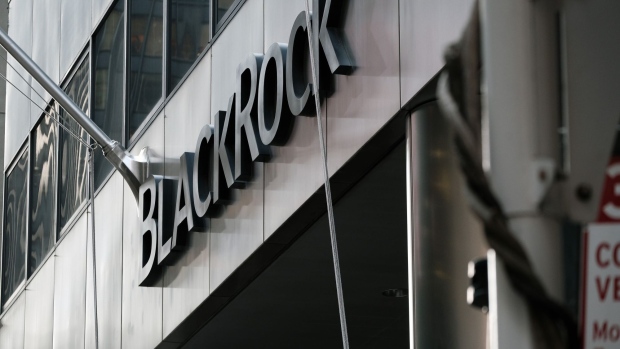Dec 14, 2022
BlackRock Is Becoming the Republican Boogeyman for ESG
, Bloomberg News

(Bloomberg) -- Florida Governor Ron DeSantis is making it clear that he either doesn’t like BlackRock Inc. or thinks pillorying the Wall Street giant as “woke” is good politics with 2024 approaching.
The Republican’s administration is pulling $2 billion from the world’s largest investment firm and is pushing managers who run the state’s pension funds to withdraw their holdings—some $13 billion. Why? Mainly because of the New York-based company’s loudly professed ties to environmental, social and governance investment principles.
DeSantis’s main complaint: ESG investing “sacrifices returns at the altar of the select few, unelected corporate elites and their radical woke agendas.”
BlackRock—despite continuing to be one of the biggest financiers of the fossil-fuel industry—has become Florida’s top target. In a statement announcing the state’s decision to divest from the firm, Florida Chief Financial Officer Jimmy Patronis said: “I need partners within the financial services industry who are as committed to the bottom line as we are—and I don’t trust BlackRock’s ability to deliver.”
He also singled out Larry Fink, saying BlackRock’s chief executive officer is “on a campaign to change the world” by championing “stakeholder capitalism” and ESG. But while Fink has spent the past few years singing the praises of ESG, he’s been regularly accused of allowing BlackRock to profit from investing in unsustainable industries.
Read More: Activist Urges BlackRock to Oust Fink as CEO Over ESG
Since the summer, BlackRock has put out a series of statements in response to the GOP’s onslaught. In early September, the firm defended its statements claiming to back sustainable investing when it told 19 Republican state attorneys general that the climate crisis is a top concern for its clients and a key risk to consider in financial decisions.
“Investors and companies that take a forward-looking position with respect to climate risk and its implications for the energy transition will generate better long-term financial outcomes,” Dalia Blass, BlackRock’s head of external affairs, wrote in the letter. “These opportunities cut across the political spectrum.”
And the reality is that BlackRock is on a long list of firms that publicly state they support sustainable investing. In fact, at least 10 other firms that oversee assets for the Florida Treasury are—like BlackRock—signatories of the United Nations Principles for Responsible Investing. The group’s first stated principle is: “Incorporate ESG issues into investment analysis and decision-making processes.”
The other fund managers that oversee assets for Florida and are part of PRI include Fidelity Investments, Amundi SA and Insight Investment. But DeSantis hasn’t gone after these firms in the same way that he has BlackRock.
Another peculiarity about targeting BlackRock (though it’s arguably the highest profile of those companies) is that the firm’s performance for Florida has been just fine. It’s not at the top of the pack, but it’s not at the bottom either.
Jon Hale, director of sustainability research for the Americas at Morningstar Inc., says he looked at the publicly available returns for the Florida Long Duration Portfolio as of March, which was the most-recent information he could find. The data showed that Patronis’ office employs a dozen external managers, and BlackRock ranked fifth based on one-, three- and five-year annualized returns.
“Based on these bottom-line results, it’s hard to imagine how a fiduciary could say with a straight face that he doesn’t ‘trust BlackRock’s ability to deliver,’ unless that person has some other agenda,” Hale says.
Indeed, BlackRock and its CEO have been the public face of Wall Street’s effort to convince the world that major financial firms are friends of the planet. This may be what’s made it such a ripe target.
What’s happening in Florida is “all part of Republican efforts to discredit and demonize the asset management industry’s commitment to assessing climate change and other material ESG-related risks and opportunities,” Hale says.
In the end, the anti-ESG campaign will be a loser, he predicts.
“Most end investors are concerned about climate change and don’t want their fund managers taking a head-in-the-sand approach dictated by politicians,” he says. “If Republicans continue to persist, it will generate a greater response from those who live in the real world that investors should take climate and other ESG risks and opportunities seriously.”
Bloomberg Green publishes Good Business every week, providing unique insights on ESG and climate-conscious investing.
©2022 Bloomberg L.P.






